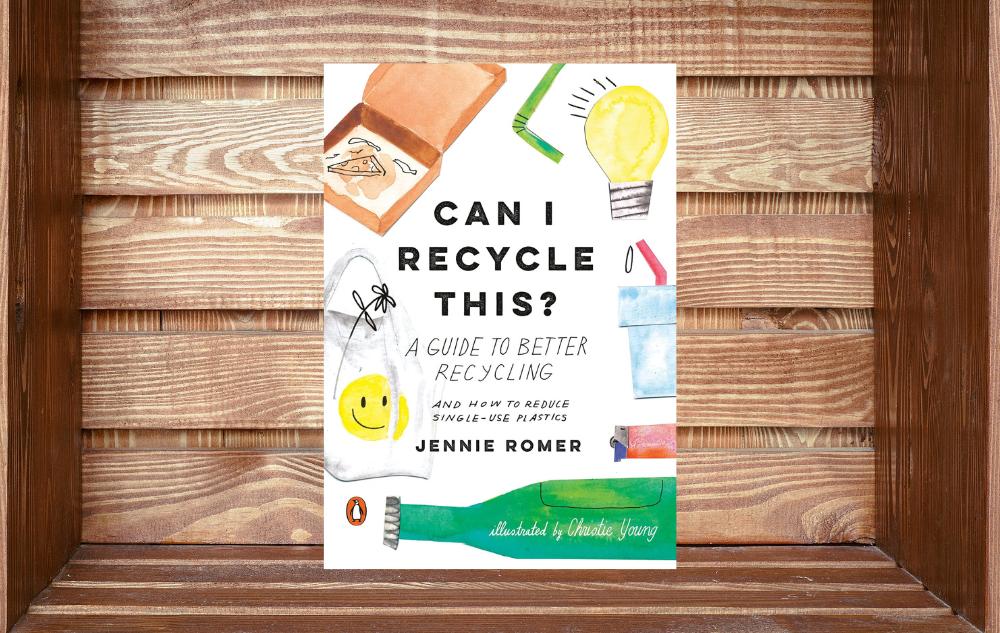It’s time to dispel the notion that your actions are inconsequential.
Climate change stands as an imposing challenge, casting its shadow over ecosystems, reshaping weather patterns, and jeopardizing the holistic well-being of our planet. Amid the vastness of this predicament, the belief persists that individual actions amount to mere drops in an ocean of global issues.
Society has led individuals to make consumer decisions dictated by convenience and fast-revolving trends, resulting in a polluted and cluttered planet. Yet, in this cycle of unintended consequences, there lies a transformative potential.
What if, for a moment, we paused to contemplate our impact on the planet? By making thoughtful choices and embracing joyful changes, we have the power to not only diminish our negative imprint but also amplify our positive influence. In the tapestry of our actions, a mindful thread can weave a narrative of sustainable and impactful change.
One Planet Life’s goal is to dismantle the myth that individual contributions are negligible. Use our roadmap of tangible steps to help reshape your environmental trajectory. From minimizing carbon footprints to advocating for systemic change, the tools for meaningful impact are within reach. Join us in forging a more sustainable and resilient future.
Reduce Your Footprint
Start by understanding your carbon footprint, the total amount of greenhouse gases you generate directly or indirectly. Simple lifestyle changes, such as using energy-efficient appliances, driving fuel-efficient vehicles, carpooling, or opting for public transportation can significantly reduce your carbon footprint.
Download the One Planet Life app to take the guesswork out of tracking just how much of an impact your lifestyle changes can make. In our app, you can set goals to reduce your carbon dioxide (CO2) emissions and celebrate your daily progress. The Life Center Dashboard displays just how much of an impact your Joyful Changes are making and the pounds of CO2 emissions you are saving through each action. You can also earn Planet Points, another way to track sustainable behaviors that aren’t directly tied to CO2, and watch your actions add up.
Practice the Three Rs
Reduce, Reuse, and Recycle. Minimize waste by opting for products with minimal packaging, reusing items, and recycling materials like paper, glass, and plastic.
In the most recent figures available by the United States Environmental Protection Agency (EPA), only about 32% of the total 292.4 million tons of municipal solid waste generated in the U.S. was recycled properly.
Interested in Learning More?
CAN I RECYCLE THIS? A Guide to Better Recycling and How to Reduce Single-Use Plastics by Jenny Romer is a wonderful resource for beginners and ardent recyclers alike. Romer is a leading expert on single-use plastics and reduction and recycling in the U.S. and has the answers to your questions about recyclables. Learn what inadvertently ends up in landfills and our oceans, and and how to recycle properly to prevent your thoughtful action from going awry.
Ditch the Plastic
Single-use plastics have infiltrated every part of our lives. The world now produces more than 380 million metric tons of plastic every year. Unfortunately, only about 5-6% of U.S. plastics are recycled, with much of it ending up in quickly-expanding landfills and polluting our natural green spaces and oceans. Shockingly, the average American throws away approximately 185 pounds of plastic a year.
Luckily, there are easy ways you can help reverse this trend. Opt for a reusable water bottle instead of buying disposable single-use bottles. Next time you order lunch, bring along a reusable set of utensils to cut down on single-use items. Flimsy plastics, like shopping bags, are notoriously difficult to recycle. Next time you take a trip to the grocery store, bring your own reusable tote along instead.
Optimize Your Energy Efficiency at Home
Invest in energy-efficient technologies for your home, such as LED lighting, smart thermostats, and well-insulated windows. Conserving energy reduces your utility bills and also decreases the demand for fossil fuels. Energy-efficient lighting, like LEDs, can use up to 90% less energy and last up to 25 times longer than traditional incandescent bulbs.
Also, unplugging appliances when you aren’t using them can drastically cut your overall energy consumption. In fact, 23% of electricity consumed in homes is wasted by standby power.
Support Renewable Energy
If possible, consider investing in renewable energy sources like solar panels for your home. Supporting renewable energy initiatives and advocating for their implementation in your community can contribute to a cleaner and more sustainable energy future.
The International Energy Agency reported that global additions of renewable power capacity are expected to jump by a third in 2023, as growing policy momentum, higher fossil fuel prices, and energy security concerns drive strong deployment of solar PV and wind power.
Choose a Sustainable Diet
Adopting a plant-based diet or reducing your meat consumption can significantly lower your carbon footprint. In doing so, you can make a healthier choice for both you and the planet.
Meat-rich diets have been linked to increased risks of heart disease and high blood pressure, and has a disastrous effect on our planet.
Livestock farming is a major contributor to methane emissions, a greenhouse gas that is 25 times more polluting than carbon dioxide. Transitioning to a plant-based diet has the potential to reduce diet-related land use by 76% and diet-related greenhouse gas emissions by 49%, according to a 2022 study published by the National Institute of Health.
Here’s how much carbon you could save by choosing vegetarian or vegan options over meat or fish, according to Exeter City Council:
- 1 vegetarian day per week (52 days a year) can save nearly 100kgs of CO2 per year.
- 1 vegetarian week per month (12 weeks a year) can save nearly 153kgs of CO2 per year.
- 1 vegan day per week (52 days a year) can save nearly 143kgs of CO2 per year.
- 1 vegan week per month (12 weeks a year) can save nearly 231kgs of CO2 per year.
Need help getting started? Visit the recipes section of our website for meal inspiration!
Conserve Water
Practice water conservation by fixing leaks, using water-saving appliances, and being mindful of your water consumption. Consider installing low-flow faucets and eco-flush toilets. Repurpose an old barrel or container to collect rainwater for outdoor use.
Water conservation is more important now than ever before. The World Wildlife Fund estimates that by 2025, two-thirds of the world’s population may face water shortages.
Consume Mindfully
Make informed choices when purchasing products. Support companies that prioritize sustainability and ethical practices, such as B Corporations. Consider the environmental impact of products, such as their production processes and packaging, before making a purchase.
The fashion industry alone is responsible for about 4% of global carbon emissions, according to the United Nations Environment Programme’s Sustainable Fashion: Communication Strategy 2021 – 2024. Unchecked fashion production will account for 26% of all carbon emissions by 2050. By shifting away from fast-fashion trends and investing in capsule closets or thrifting for clothes, you can help reduce the impact the industry has on overall emissions.
Plant Trees and Support Reforestation Efforts
Trees act as natural carbon sinks, absorbing carbon dioxide from the atmosphere. Support reforestation initiatives or participate in tree-planting events in your community. Trees not only help combat climate change but also contribute to biodiversity and air quality.
Deforestation is responsible for about 11% of global greenhouse gas emissions, according to the Food and Agriculture Organization of the United Nations.
Choose a Greener Commute
Opt for sustainable transportation options, such as walking, biking, or using electric or hybrid vehicles. If possible, work remotely to reduce the need for daily commuting. Encourage your workplace to implement telecommuting policies.
Choosing a bike over a car just once a day can reduce the average person’s transportation-related emissions by 67%, according to research from the University of Oxford.
Advocate for Change
Knowledge is power! Engage in conversations about climate change and advocate for policies that promote sustainability. Participate in community initiatives, join local environmental groups, and encourage businesses and policymakers to adopt eco-friendly practices.
By incorporating these practical steps into our daily lives, we can collectively make a substantial impact on combating climate change. Every small action adds up, and as responsible stewards of the planet, it is our duty to contribute to a sustainable and resilient future for generations to come. Through informed choices and advocacy, individuals can be powerful agents of change in the global fight against climate change.














